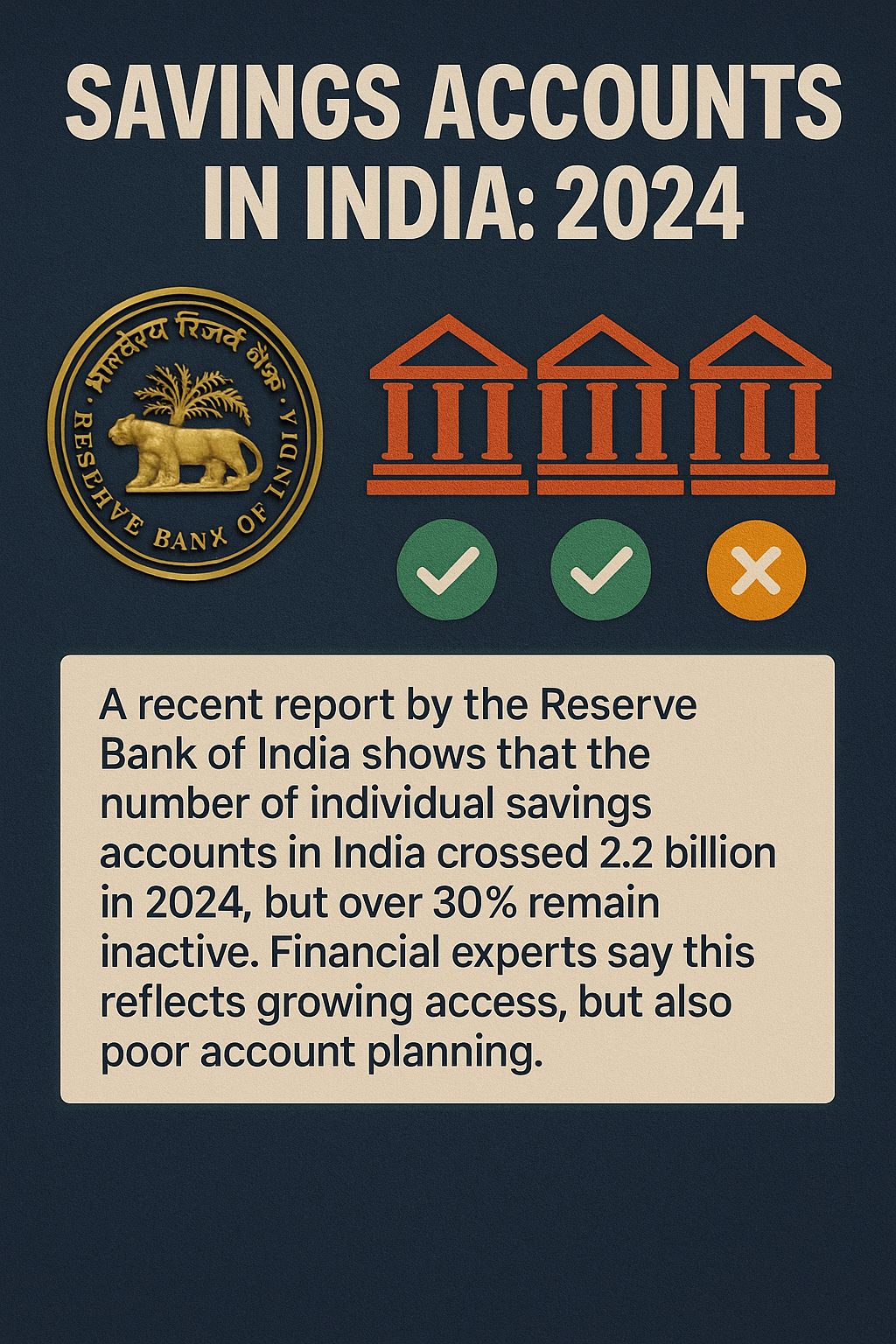- The Money Edition
- Posts
- 🏦 How Many Bank Accounts Should You Really Have?
🏦 How Many Bank Accounts Should You Really Have?
The smart way to split, save, and simplify your money

🌟 Hey there!
Ever wondered if you're doing it right when it comes to the number of bank accounts you hold?
Too many, and it’s a juggling act. Too few, and you risk mixing up your goals, bills, and spending.
Let’s clear the confusion and find that sweet spot — so your money works for you, not the other way around.👇
💡 Why You Should Have Multiple Bank Accounts
Having more than one bank account isn’t about being fancy — it’s about intentional money management. Here’s why it helps:
🎯 Budgeting Clarity: Separate your expenses (bills, rent, groceries) from your discretionary spends (shopping, dining out).
🚨 Emergency Ready: A dedicated emergency fund ensures you're not dipping into savings when life throws a curveball.
🔒 Savings Discipline: When savings are kept apart, you're less tempted to touch them.
📊 Goal Tracking: Planning for a trip, a new laptop, or a wedding? A separate account makes it easy to track your progress.
🧩 The Ideal Setup (for Most People)
You don’t need 10 accounts — just the right ones with clear roles:
Primary Spending Account:
For salary credits and daily expenses. This is your go-to account for routine debit card use, UPI transactions, and quick transfers.Fixed Expenses Account:
Automate rent, EMIs, subscriptions, utility bills, and insurance payments from here. Keeping this separate ensures you never miss a critical due date and prevents overspending from your main account.Emergency Fund Account:
Park 3–6 months of basic living expenses. Use a high-interest savings account or a liquid mutual fund. This account should be easily accessible but separate enough to not tempt you for non-emergencies.Short-Term Goals Account:
Saving for a vacation, a new phone, or festive gifting? This account helps you track and achieve these smaller, time-bound goals without interfering with other savings.Long-Term Wealth Account:
Link this to mutual funds, SIPs, PPF, or recurring deposits. This is your wealth creation engine — where consistent investments compound over time.
Optional Add-ons:
Joint Account for shared household expenses if you’re married or living with a partner.
Business/Freelance Account if you earn from a side hustle, freelance gigs, or run a small business — keeps personal and professional finances distinct.
Note: It is always suggested to have at least 3 different types of account. Can be the one suggested up👆 or you can try mixing up some.
⚠️ Common Mistakes to Avoid
Mixing everything in one account → Often creates confusion and mismanagement.
Forgetting dormant accounts → May lead to penalties and heavy fines.
Using savings account as investment → You can lose your growth.
Not automating transfers → Leads to inconsistent saving.
📰 In The News
 | A new RBI report reveals that India now has over 2.2 billion individual savings accounts as of 2024 — a sign of rising financial inclusion, driven by schemes like Jan Dhan Yojana and digital banking growth. But there’s a catch: 30% of these accounts remain inactive. Experts say that while more people have access to banking, many lack the know-how to manage multiple accounts effectively. The result? Poor planning, unused funds, and missed financial opportunities. |
🧠 Expert View
"Treat your bank accounts like labelled jars — each with a job. It creates discipline and clarity."
— Rachana Ranade, Finance Educator
She adds that automating transfers between accounts can eliminate decision fatigue and boost long-term financial health.
⚡ Quick Tip of the Week
✅ Use nickname labels or descriptions on your accounts and banking apps (e.g., "House Rent A/C", "Travel Fund")
— it’s a game-changer for visibility and motivation.
🧾 Final Thought
Your bank accounts aren’t just places to park money — they’re tools to organize, simplify, and grow your financial life.
So go ahead — label your jars, automate your flows, and start building a system that supports your goals.
Until next time,
The Money Edition
Helping you swipe smarter, not harder.